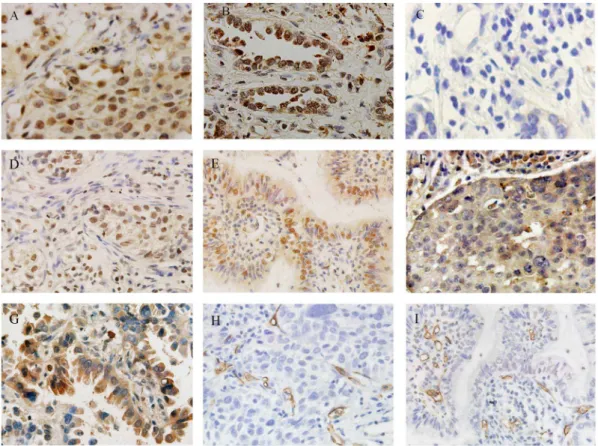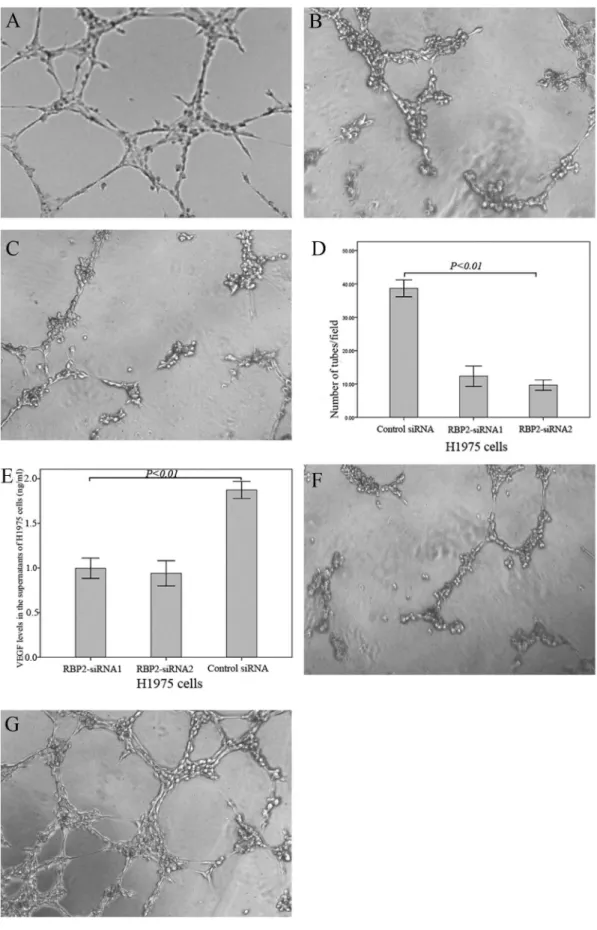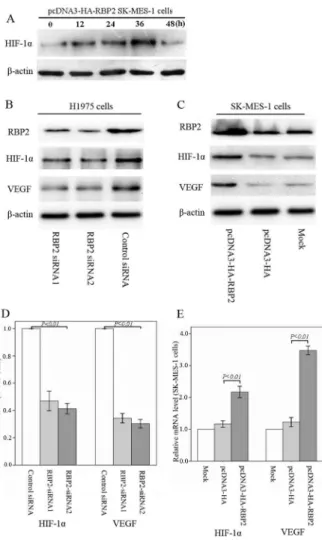Retinoblastoma binding protein 2 (RBP2) promotes HIF-1α-VEGF-induced angiogenesis of non-small cell lung cancer via the Akt pathway.
Texto
Imagem




Documentos relacionados
Expression of vascular endothelial growth factor (VEGF) and VEGF receptors in tumor angiogenesis and malignancies. Integr
The effect of the prenylated xanthone derivatives on the in vitro growth of human tumor cell lines MCF-7 (breast adenocarcinoma) and NCI-H460 (non-small cell lung cancer) is also
Expression of a dendritic cell maturation marker CD83 on tumor cells from lung cancer patients and several human tumor cell lines – is there a biological
Furthermore, the samples were screened, using in vitro assays, against different human tumor cell lines, MCF-7 (breast adenocarcinoma), NCI-H460 (non-small cell lung cancer),
Although the results of two studies [18,19] which reported the impact of p-AKT expression on overall survival have the opposite conclusion compared with the other five
Here we disused different method for diagnosis the common types of lung cancer Non-Small Cell Lung Cancer, Small Cell Lung Cancer, Small Cell Lung Cancer Limited Stage,
After immu- nohistochemical staining of clinical non-small cell lung cancer (NSCLC) specimens to deter- mine the expression levels of the components of this network, a
in lung, urinary and gastrointestinal tumors, demonstrating the prognostic importance of angiogenesis, that is, the significant association between high tumor vascularization

